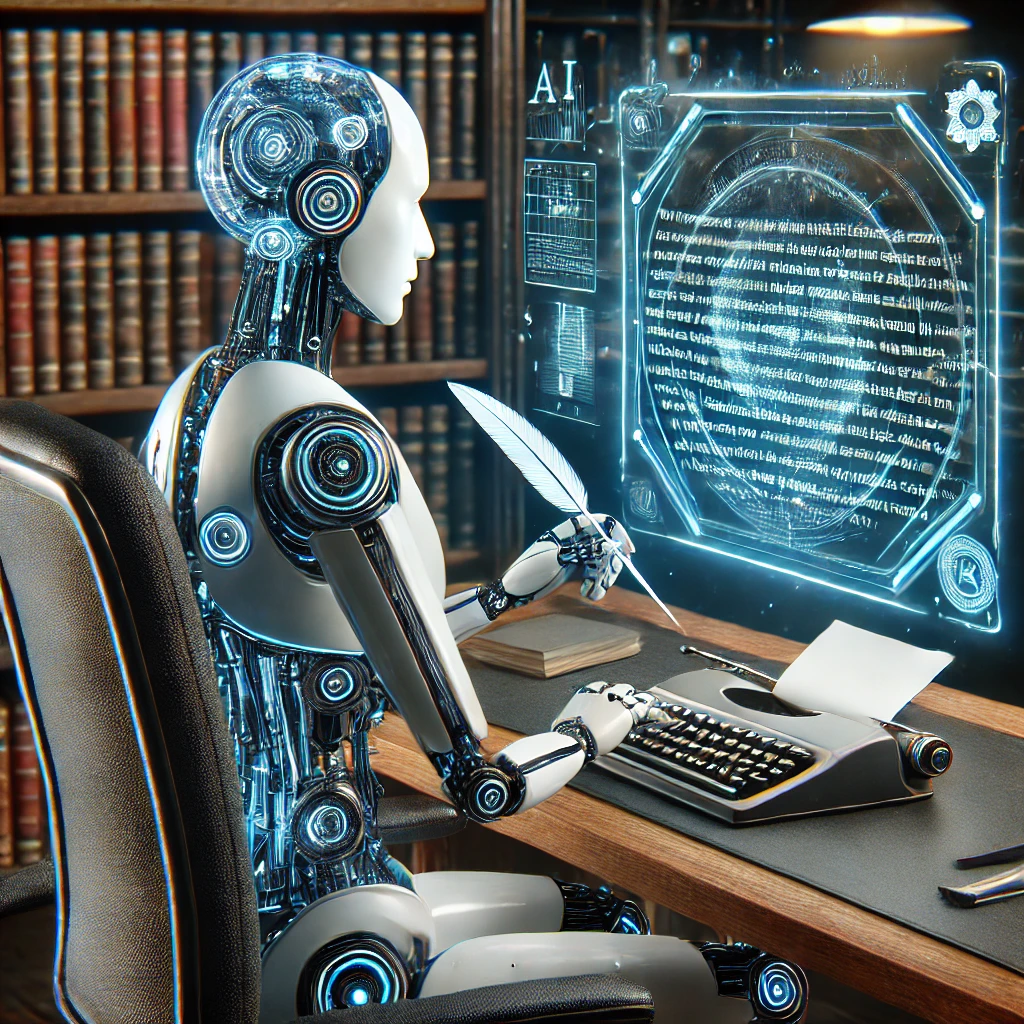
Introduction
Artificial intelligence (AI) is revolutionizing the literary world, generating entire novels with minimal human input. While AI-generated stories showcase the potential of machine creativity, they also raise ethical and legal questions: Who owns the rights to these works? Can an AI be considered an author? What are the implications for traditional writers? This article explores the ethics of AI-generated novels, delving into ownership issues, copyright laws, and the future of human-AI collaboration in literature.
Understanding AI-Generated Novels
AI-generated novels are created using machine learning models, such as OpenAI’s GPT or Google’s Bard, trained on vast datasets of existing literature. These models analyze patterns in language, style, and storytelling to produce coherent, engaging narratives. While AI can mimic human writing, its creative process is fundamentally different—it lacks true originality, emotions, or personal experiences.
The Ownership Debate: Who Holds the Rights?
1. Can AI Be Considered an Author?
One of the biggest ethical dilemmas is whether AI can be legally recognized as an author. Most copyright laws worldwide grant authorship rights to human creators, as seen in the U.S. Copyright Office’s stance that only human-generated works are eligible for protection. Since AI lacks consciousness and intent, it cannot claim ownership.
2. Rights of the Human Operator
If AI cannot hold copyrights, the question shifts to the human user or developer. Possible claimants to ownership include:
- The User – The individual who inputs prompts and refines the AI’s output may argue for creative control and ownership.
- The AI Developer – Companies that design and train AI models may claim rights over the works produced by their systems.
- Joint Ownership – Some propose a hybrid model where AI is seen as a tool, and the human collaborator retains rights.
3. Legal Precedents and Copyright Challenges
Legal frameworks struggle to keep pace with AI advancements. In recent rulings, courts have denied AI-generated works copyright protection. However, different jurisdictions may interpret ownership differently, leading to inconsistencies in global copyright enforcement.
Ethical Implications of AI-Generated Novels
1. Impact on Human Writers
AI’s ability to produce content rapidly raises concerns about job displacement among authors. While AI can assist writers by generating ideas or drafting content, the fear remains that publishers might favor AI-written books over human-authored works to reduce costs.
2. Plagiarism and Originality Concerns
Since AI models are trained on existing literature, they may unintentionally reproduce elements of copyrighted works. Determining whether AI-generated content constitutes plagiarism is a growing concern, as it blurs the lines between inspiration and replication.
3. Ethical Responsibility in AI Usage
Who is accountable if an AI-generated novel includes offensive or harmful content? Since AI lacks intent, responsibility falls on the human user or the developers. Ethical guidelines and transparent AI training methods are necessary to prevent biased or unethical storytelling.
The Future of AI in Literature
1. Human-AI Collaboration
Instead of replacing human authors, AI can enhance creativity. Writers can use AI for brainstorming, overcoming writer’s block, or enhancing productivity while retaining final creative control.
2. Possible Legal Reforms
To address ownership issues, new copyright laws may emerge, granting AI-assisted works limited protection while ensuring human authors remain at the forefront of literary creation.
3. Reader Reception and Market Adaptation
Readers may initially resist AI-generated novels, valuing human storytelling’s emotional depth and authenticity. However, as AI improves and ethical concerns are addressed, AI-generated fiction may carve out its niche in the publishing industry.
Conclusion
The ethics of AI-generated novels extend beyond mere ownership—touching on creativity, copyright, and the future of storytelling. While AI cannot legally claim authorship, its role in literature is undeniable. Striking a balance between technological advancement and ethical responsibility is crucial. What are your thoughts on AI-generated books? Share your views in the comments!
